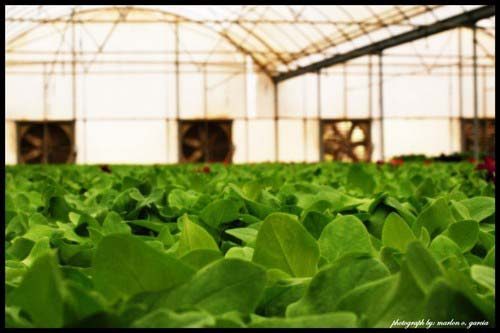
At best, only 6 percent of Qatar’s lands are farmable. So how will the country go from almost total dependence on imports to mostly feeding itself in 12 years?
With revolutionary technology, a big budget and 60 million tons of imported manure a year, according to the officials behind Qatar’s National Food Security Program.
In recent interviews with media in the run-up to the UN Climate Change Summit (COP18), which launches pre-sessional talks in Doha this week, QNFSP’s representatives have gone on the offensive about the country’s dismal environmental record and its ambitious program to green the desert by 2024.
The two factors actually go hand-in-hand, QNFSP chairman Fahad bin Mohammed Al-Attiya recently told Al Jazeera English.
“Qatar, like any other country, is impacted by climate change,” he said. “As a matter of fact, they call this place the epicentre of climate change – there is no water and there is no food. We are impacted by all of these variables that happen outside of our borders.”
To change that reality, Qatar must start growing its own food. It plans to do that through “a complete re-engineering of Qatar’s environment, both physical and social,” Time magazine reports, including:
- New desalinization plants that operate on solar energy, not fossil fuels;
- Greenhouses inspired by camel’s nostrils;
- And a strict adherence to water conservation techniques that, if socially accepted, Al-Attiya said he would have achieved his own “Arab Spring.”
No doubt, all of the country’s plans will cost money – a lot of it.
Time correspondent Aryn Baker writes:
“From an economic point of view, Qatari agriculture will never be sustainable,” says (Mahmoud Ahmed Hashim, an agronomist from Sudan who heads the QNFSP’s agriculture program).
But as long as the government is willing to subsidize the cost of advanced farming methods, the cost of desalinization and the cost of transporting water, Qatari farmers will be able to feed the population and make a living. “This is our culture in arid lands,” says Hashim. “You have problems, but you can over come them. As long as there is a budget.”
Some analysts question whether the $25 billion already pledged to the program will still be available if gas prices drop. Others criticized efforts to “green the desert” as economic folly, suggesting money be invested in more arable lands instead.
But Al-Attiya insists that Qatar try to solve its own problems, Time reports.
Through its expensive experiments – including one that involves sowing crops into treated salt-crusted soil and irrigating them with treated sewage water – it could also lower the costs of research for everyone else, the magazine adds.
Thoughts?
Credit: Photo by Marlon Garcia







